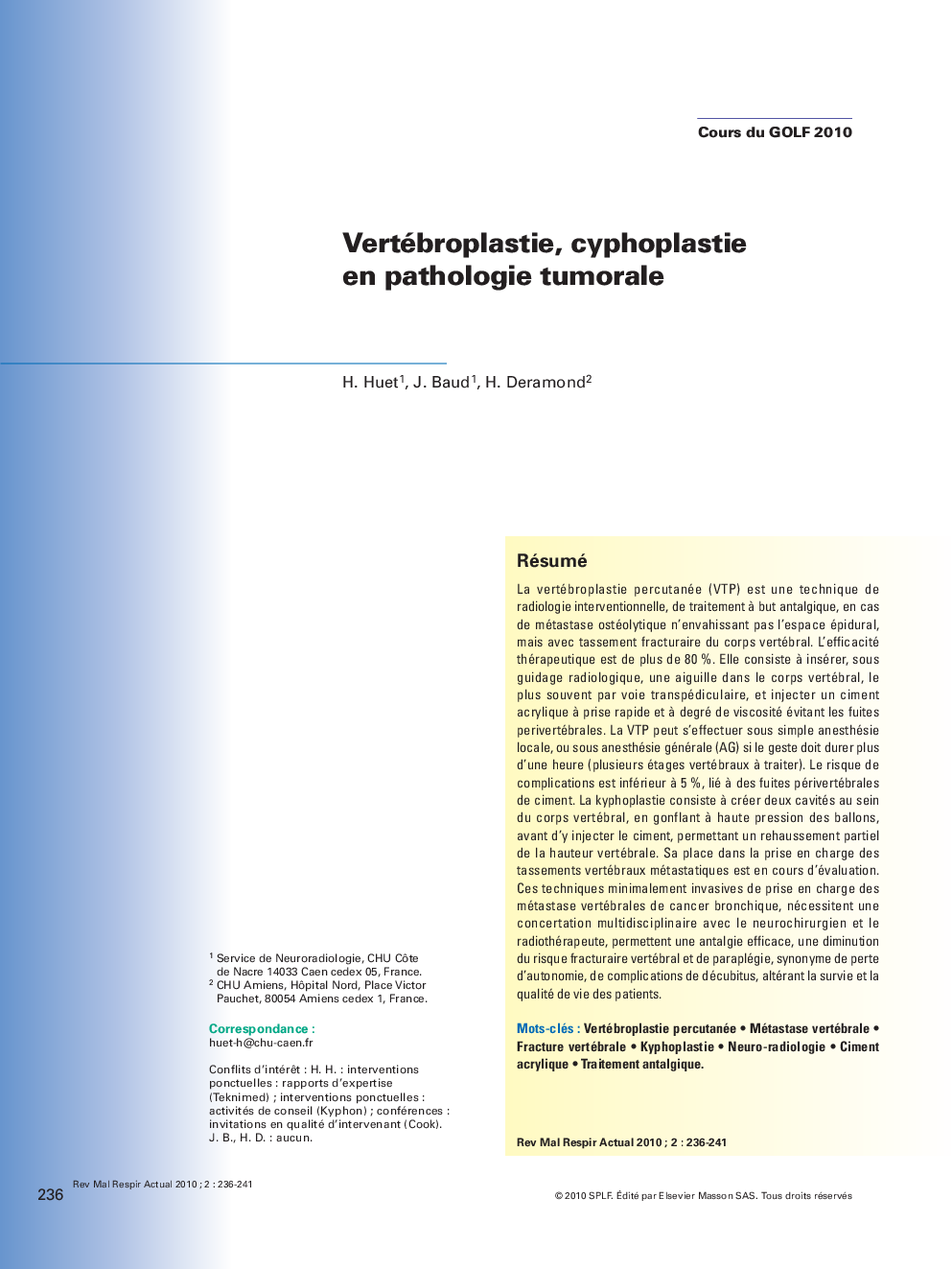| Article ID | Journal | Published Year | Pages | File Type |
|---|---|---|---|---|
| 4216451 | Revue des Maladies Respiratoires Actualités | 2010 | 6 Pages |
Abstract
Percutaneous vertebroplasty (PVP) is an interventional radiology technique, whose objective is pain palliation in cases of osteolytic metastasis that has not invaded the epidural space but with compression fracture of the vertebral body. Treatment efficacy is greater than 80 %. It consists in inserting a needle into the vertebral body, under radiological guidance, most often via the transpedicular approach, and injecting rapid-setting acrylic cement at a degree of viscosity preventing perivertebral leakage. PVP can be performed under local anesthesia or general anesthesia if the procedure is expected to last more than 1h (when several levels of vertebrae are to be treated). The risk of complications is less than 5 %, related to perivertebral cement leakage. Kyphoplasty consists in creating two cavities within the vertebral body, by inflating balloons at high pressure before injecting cement, providing partial elevation of the vertebral height. Its place in managing metastatic vertebral compression fractures is being evaluated. These minimally invasive techniques in managing vertebral metastases of lung cancer require a multidisciplinary team with the neurosurgeon and the radiotherapist, providing effective pain relief, reducing the risk of vertebral fracture and paraplegia and its consequential loss of autonomy, decubitus complications, which can alter patient survival and quality of life.
Keywords
Related Topics
Health Sciences
Medicine and Dentistry
Pulmonary and Respiratory Medicine
Authors
H. Huet, J. Baud, H. Deramond,
